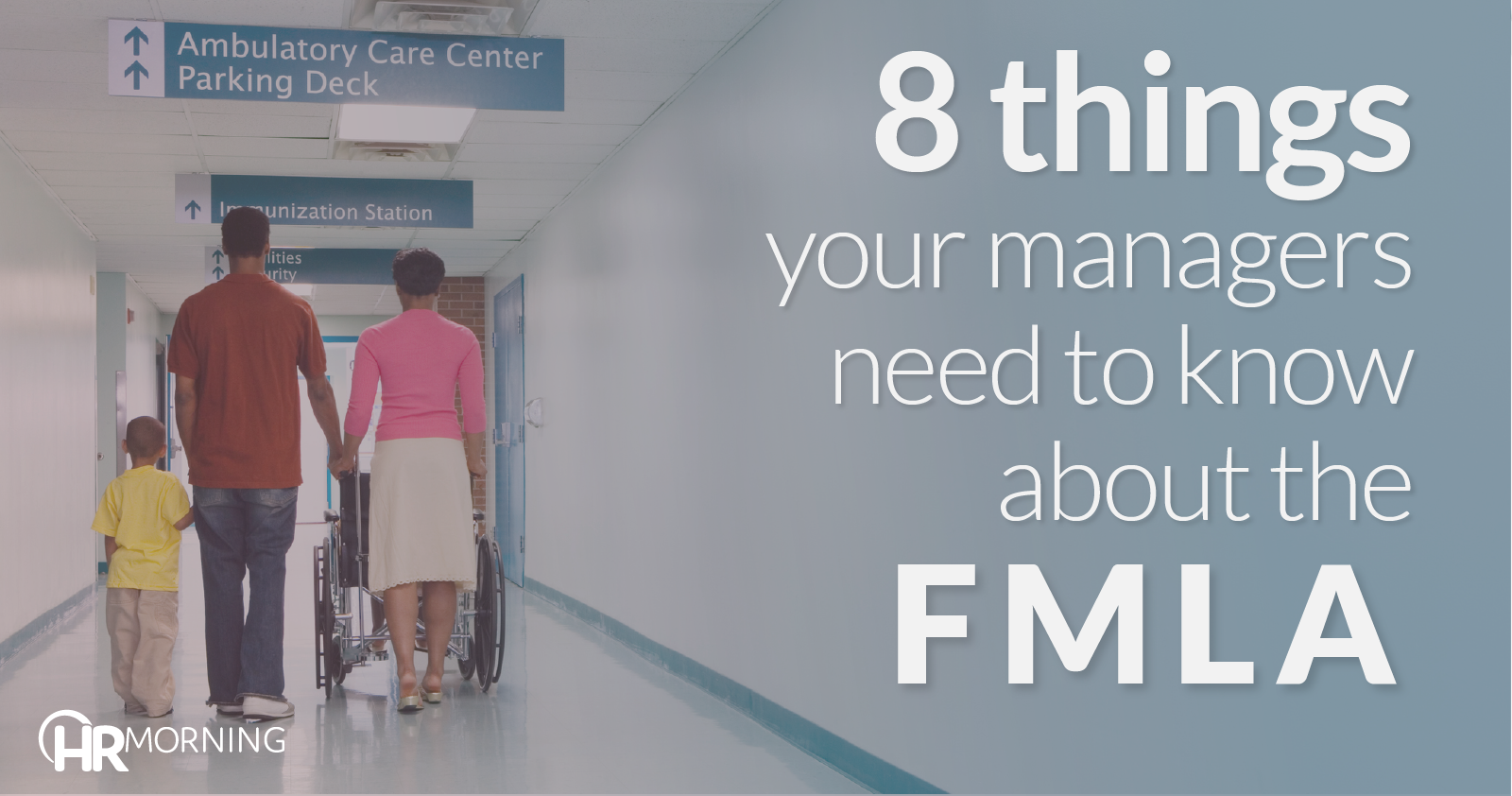Whether they realize it or not, managers have the power to make or break FMLA lawsuits.
Experts say employer violations often occur when managers respond too quickly and emotionally to FMLA-triggering situations. The good news is, proper training is the key to preventing these costly manager mistakes.
Responding carefully
At the annual SHRM conference, Jeff Nowak, partner at Franczek Radlet and founder of FMLA Insights, and Matt Morris, VP of FMLASource, shared eight things you should tell your managers about handling FMLA requests:
- Be on the lookout for a serious health condition. It’s important for managers to know when an employee’s illness could potentially turn into something more. For example, if an employee took a sick day because of a sore back, find out if it was a temporary strain or a chronic condition.
- Remember FMLA leave can be intermittent. FMLA leave isn’t always long-term; a few absences here and there can still be protected. Managers need to be able to identify what’s intermittent FMLA leave and what’s just a regular sick day.
- Know when to involve HR. When a manager determines an employee might qualify for FMLA leave, they need to know when to bring HR into the conversation. Let them know at what point in the discussion this should happen.
- Enforce policies consistently. If your company has certain call-in procedures for employees on FMLA leave, it’s important those policies apply to everyone. An employee’s retaliation claim could be stronger if policies weren’t enforced fairly.
- Hold back emotions. Managers shouldn’t let an employee know they’re unhappy about their FMLA leave request, but it can be tricky to hold back a reaction of some kind. Train your managers to respond with, “Let me know how I can help you.”
- Keep things confidential. Managers can’t discuss an employee’s medical condition or FMLA leave with people who don’t need to know about it — this by itself can violate the FMLA. Help your managers come up with responses if co-workers ask about an employee on leave.
- Don’t bother workers on leave. Employees out on FMLA leave shouldn’t have much contact with the company. There could be situations where contact is necessary, but those should be handled carefully. Tell your managers to ask HR before reaching out to someone on leave.
- Document everything. When an employee who took FMLA leave is terminated, it can easily look suspicious. It’s crucial for managers to document everything, including performance issues or strange leave patterns that could indicate FMLA abuse.

